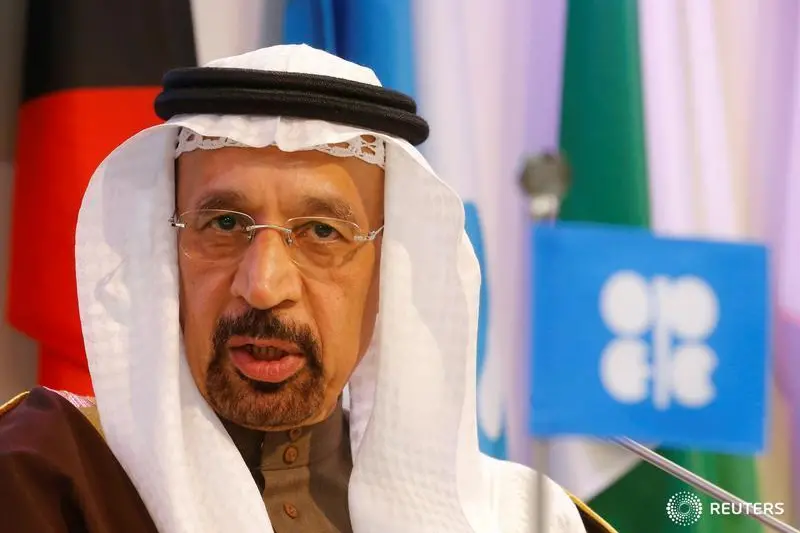PHOTO
VIENNA - Saudi Energy Minister Khalid al-Falih said on Thursday increasing oil supply by 1 million barrels per day would be a good target as the Organization of the Oil Exporting Countries and allies such as Russia meet in Vienna this week.
Below are highlights from Falih's speech at an OPEC seminar:
"What strikes me most is the great alignment, the very strong alignment between the interests of producers and consumers and many people underestimate how much alignment of interests there is between producers and consumers of petroleum."
"We’ve seen investments start flowing back, certainly it’s flowing back in the (United States) with short-cycle oil, the shale. We still want more investment. My concern is really to be able to look forward in terms of five to 15 years in the future and see enough long-cycle projects coming back in."
"We want to prevent the shortage and the squeeze that we saw in 2007-2008, we saw it again a few years ago as a result of lack of investment. But at the same time we want to prevent the severe downturns that choke the industry, cause bankruptcies, jobs being lost across the world."
"Our OPEC secretariat will share with us today in the Joint Ministerial Monitoring Committee their report. I’ve looked at the report flying in and I think it shows that there will be a deficit in the second half of this year of 1.6 – 1.8 million barrels assuming that the main production continues. That will continue to drive inventories down. We think that that will be probably too short of a supply situation, we cannot allow it to happen. So what level of supply release – we will have to come to a consensus."
"At the end of the day our first and foremost responsibility is to our consumers and to our market."
"How much do we distribute amongst the countries and how much of it actually is delivered I think is the debate in the next couple of days."
"One thing you can be assured of is we will be responsible, we will release supplies to make sure that no shortage materialises."
"Coming close or even below the 1.8 million cut is called for by the fundamentals. How to achieve it is the tricky question because not every country can respond to an allocation for a higher production target."
"Reallocating (output) to other countries like Saudi Arabia may be a technical solution but it may not be politically acceptable to others."
"I can speak for Saudi Arabia. We do have a couple of million barrels of spare capacity ... How much oil do we need – it's not going to be anything close to that level but volumes around 1 million probably, given the fact that we will see demand in the second half rise significantly above the first half, I think 1 million sounds to me that that would be a good target to work with."
"In the mid to long term we are concerned about global trade and global economic growth obviously when the major economies clash ... It’s difficult for me to see that we’re going to see a significant drop in demand in the next 18 months or so."
(Compiled by Shadia Nasralla; Editing by Dale Hudson) ((Shadia.Nasralla@thomsonreuters.com; +44 207 542 5083; +44 778 99 43141; Reuters Messaging: Reuters Messaging: shadia.nasralla.reuters.com@reuters.net))





















